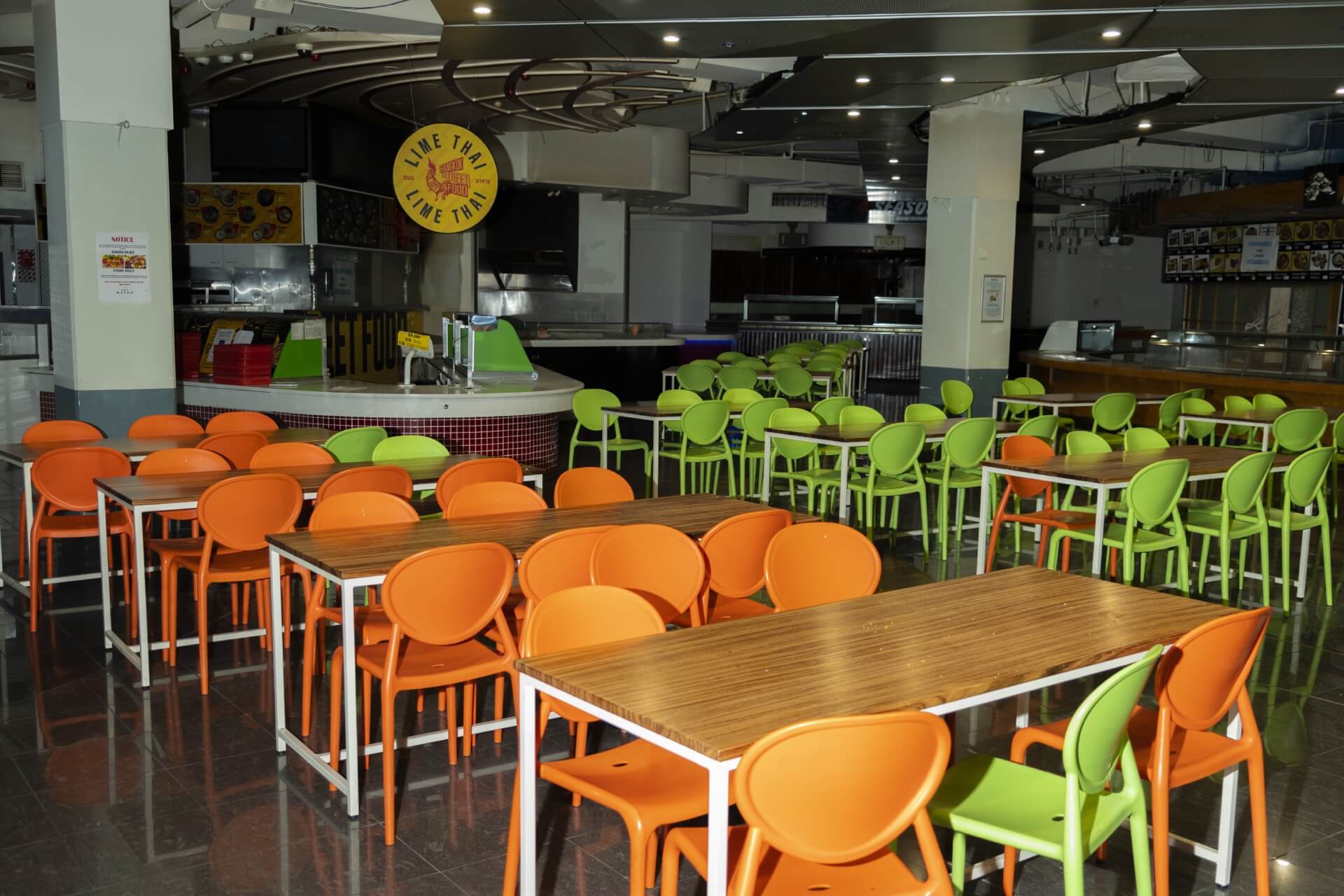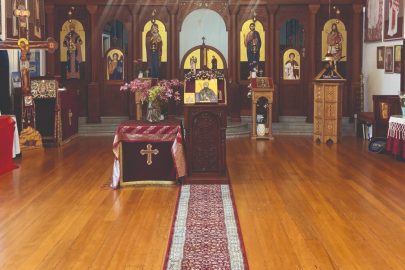Aug 9, 2021 Urban design
It’s Saturday night in central Auckland and trouble is brewing. In a deserted food court, four teens take over an abandoned ice-cream shop. Egging each other on, they jump over countertops, kick cupboard doors, rifle through drawers and stomp a whiteboard into pieces. The carnage eventually spills into a neighbouring outlet where they grab fistfuls of Pita Pit promotional cards. The quartet flick them at each other with glee, spreading litter over counters and across the linoleum floor.
Eventually, one spots me tapping notes on my phone. “Lesh go!” he yells to his mates as they race towards the exit. It’s a giant food court inside a huge building, one of the biggest in Auckland open to the public, yet no security guards or cleaners arrive to sort out the mess.
Moments later, Nigel Wilson speed-walks through the front doors. The Auckland-based handyman has been held up finding a space in the rammed underground car park. “We got fucked up doing a U-turn,” he says.
Wilson and his dining partner need to find dinner, quickly. Jersey Boys, the hit musical playing to packed crowds at the nearby Civic Theatre, begins in 30 minutes, and they have tickets. As they venture deeper inside the Sky World Entertainment Centre, a huge, ageing complex next to Auckland’s Aotea Square, they find the vandals’ debris. Wilson was last here three years ago for a feed when this food court was full. “It was thriving,” he says.
Today, it’s a different story. The former Burger King is boarded up. Starbucks is now a storage area. Music plays to empty chairs stacked on tabletops. Stalls that used to offer pizza, ramen, sushi, Indian and Vietnamese to hungry punters are deserted. Toilets are locked tight.
None of this is any use to Wilson. Neither are the restaurants on the upper level. Out of a dozen recently filled spots, only a Chinese eatery and a dessert bar are open. He’s appalled at the state of the place. “So we can’t eat now?” he spits in disgust. “It’s pathetic, in this city, in the 21st century… I just want an Indian thali.”
Wilson’s got a point. The city’s nightlife is thriving. After all those lockdowns, Aucklanders want to party. Outside, former Shortland Street stars Angela Bloom- field and Shane Cortese join the masses attending Jersey Boys. Bookish types walk towards the Aotea Centre to see authors Amanda Palmer and Neil Gaiman appear at the Auckland Writers Festival. A few doors down, multiple venues swell with laughter as part of the International Comedy Festival. Everywhere’s bustling — except the Sky World Entertainment Centre.
The inner-city icon used to boast of 12,000 visitors a day — more than four million people a year. Tonight, in the two hours I spend loitering in the foyer, it’s perhaps two dozen. Many treat the place like a contemporary museum, a curio, their disbelieving eyes gazing up, down and around. One Whangārei resident asks: “What happened here?”
The longer I stand there, the more I become the building’s unofficial tour guide. People ask what to eat, or where the toilets are. A new mum queries if there’s a safer way to bring in her baby than navigating a pram down the slippery stairs outside. Someone loses her boyfriend and enlists my help to find him. After 10 tense minutes, we do. He was trying to break into the locked toilets.
During a breather from guide duties, I look up. Oil is leaking out of the escalators, threatening to drip onto the heads of anyone heading upstairs. It pools on overhanging ledges like tear drops. At 291-297 Queen St, the building appears to be crying.
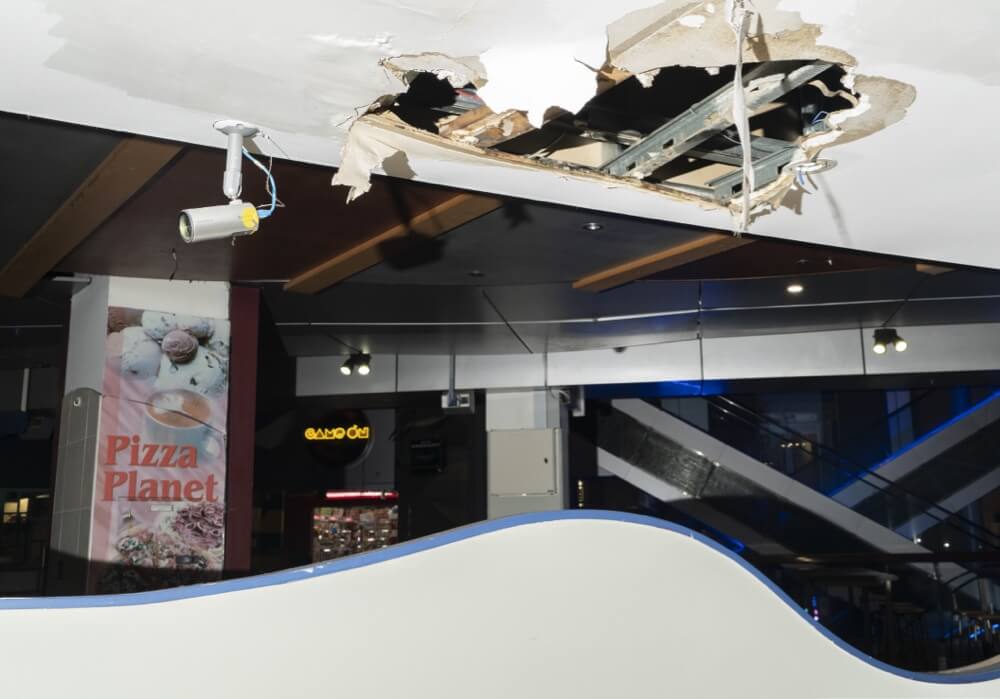
In 1997, Ashley Allen was asked to design the biggest building of his career. Property developer Peter Francis asked him to craft an entertainment hub in the middle of Auckland, giving him free rein creatively. Allen couldn’t believe his luck. He decided it should be epic, so he turned to sci-fi movies like Blade Runner and The Fifth Element for inspiration. “We didn’t want it to have the same logic as a shopping mall or an office building, which is very predictable, a bit boring,” he says. He and his team at Walker Group Architects wanted the building — which would be attached to The Civic, and replace a street and the Auckland Council information centre — to feel like it was a living, breathing organism. “You come into this thing and it’s humming and moving and things are unpredictable.”
Allen started his concepts in 1997, but plans shifted constantly. As deadlines neared and more tenants came on board, he juggled his designs to accommodate everyone. Planet Hollywood, an American restaurant chain promoted by celebrities such as Sylvester Stallone and Demi Moore, wanted separate spaces for a bar, restaurant and gift shop. The last-minute inclusion of an IMAX theatre demanded a major overhaul to accommodate its four-storey screen.
Construction had started in 1998 when American bookshop Borders leased the least-appealing part of the building — the basement. Allen thought nightclubs might want that space, but Borders, a massive anchor store, helped tie everything together. “Borders wanted an extra- high floor-to-ceiling height, and the only way we could do that was to dig out the concrete floor that had just been put in in the basement,” he says. “The building was being built upwards and it was being built downwards at the same time.”
In 1999, it opened. The Force Entertainment Centre (which has since become known as the IMAX Centre, SkyCity Metro, and then the Sky World Entertainment Centre) was unlike anything Auckland had seen. Multi-level elevators took visitors on rides into the sky, while permanent scaffolding held ledges and balconies in place. Ceiling units resembling jet engines offered air condition- ing, and a rocket-ship elevator launched visitors to upper levels. Sky paths allowed you to see the building from different vantage points. All kinds of nooks and crannies were waiting to be explored. It could be hard to find your way around, which was entirely deliberate. Elevators went in only one direction; an enclosed spiral staircase made it difficult to figure out which floor you were exiting on. “Suddenly you’re in this labyrinth, in this new world,” says Allen.
With a huge cinema complex offering big-budget block- busters, an internet cafe, video arcade and food court, the building became a must-see for anyone visiting Auckland’s city centre. Movie premieres were held in the IMAX theatre. When Burger King opened by the front entrance, it turned into a popular late-night student hang-out. Pop star Christina Aguilera cemented the building’s status by making a high-profile appearance at Planet Hollywood. “She was probably the tiniest person I’d ever seen in real life,” remembers journalist and artist Eli Orzessek, who was 15 years old at the time.
Not everyone was a fan. Some found the building baffling to navigate and easy to get lost in. Others complained all those stairs made it impossible for anyone in a wheel- chair. “It looks like a missile launching pad,” complained Mary Woodward in a New Zealand Herald piece from 2004 headlined “The ugly list: blots on our cityscape”.
Excitement surrounding the building was further tempered by tragedy. In 2000, 16-year-old Sacred Heart College student Danial Gardner slipped while sitting on an upper-floor ledge, falling 14 metres onto a table in Borders. The impact killed him, and reports from that time are harrowing. “I tried to grab hold of his trousers,” a friend told the Herald at the time. “I felt [his trousers] through my hands.”
Only one person has ever told Allen directly that they don’t like his building — and that was more to do with the underground car park. But he’s well aware of its controversial reputation. “I’d much rather have half the population hate it, and half absolutely love it, than everyone think, ‘Where’s that? I don’t know, I haven’t seen it’,” he says. “One of my philosophies in architecture is not to produce ho-hum.”
The building worked wonders for Allen’s career. Once it was complete, he received a surprise call from a property developer who wanted him to come to India. He designed 12 movie-theatre complexes and Pune’s $1 billion Amanora Mall using the same architectural vision. “We wanted it to have the same logic — escapism, a different world, but also an oasis, a place of peace,” he says. The mall still stands today.
So Allen is an expert at designing large entertainment complexes. He also cares. He considers the Sky World Entertainment Centre his “baby… it became precious”. He also thinks it’s a shadow of its former self. “It’s become a mish-mash of crap,” he says. “It’s demoralising seeing a building that hasn’t been maintained. It’s like someone pulled the plug out.”
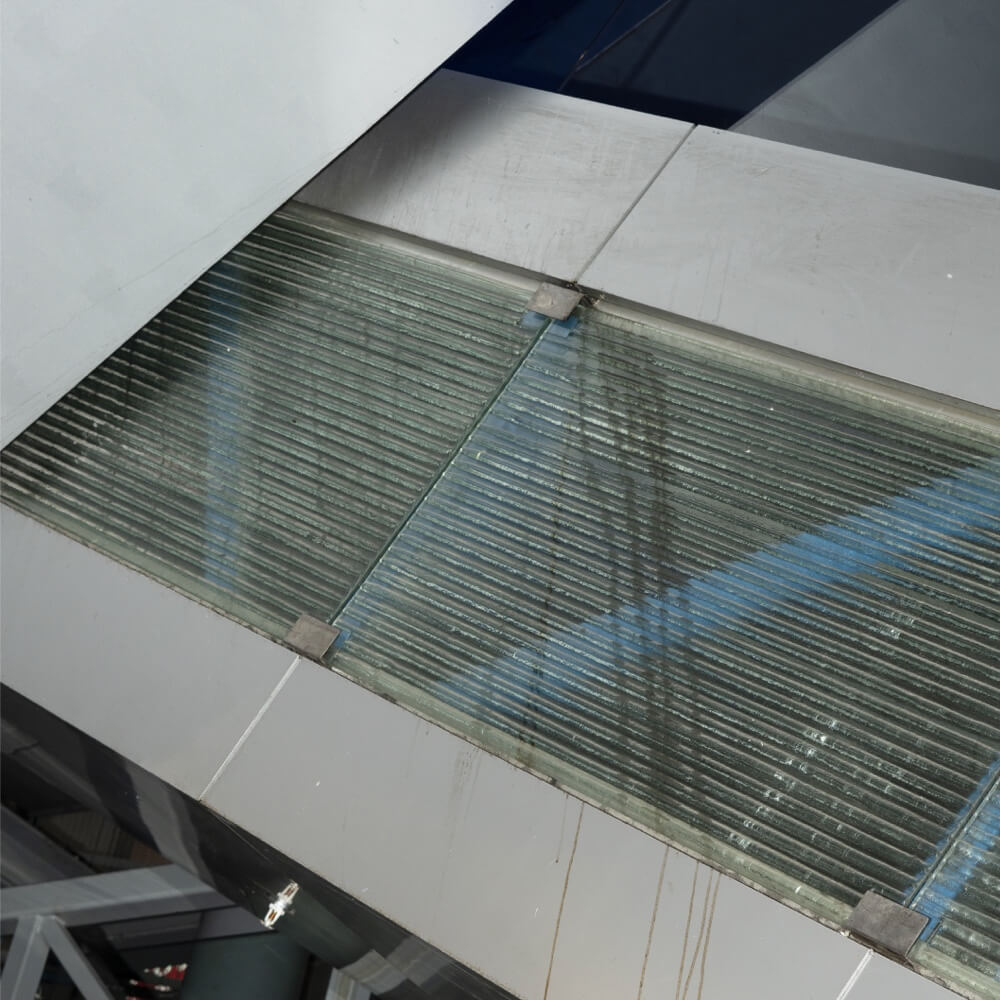
In June 2011, ownership of the Sky World Entertainment Centre changed hands. It was bought, for $37 million, by JNJ Holdings, an Auckland-based property management company. Korean national James Yoong Sun Kwak is the company’s sole director. Metro understands JNJ Holdings owns several of the closed businesses in the centre, including bakery Bake My Day and restaurants En Izakaya Teppanyaki, Sushi Wave and Pastamago. It also owns tenpin bowling alley Metrolanes, which remains open. Kwak is understood to be media shy, and has given only one short interview, to Newshub’s Simon Shepherd, in 2017. Metro has attempted, multiple times, to contact Kwak and JNJ Holdings, to put issues raised in this article to him, and to ask him about the building’s current state and its future.
Of a dozen attempts, just two resulted in replies. The first was from Ash Shah, JNJ’s secretary to the business development manager, who said, “Unfortunately, James is not available to assist you right now. He wishes you all the best for the future.” Pressed for further comment, the emails became cryptic. “We do not have any spare staff at the moment and are busy with numerous different matters currently.”
The second was from Sasha Lee, JNJ’s business development manager, who asked Metro to cease attempts to contact Kwak. “I would like to emphasize that we are currently very busy and cannot respond to messages continuously, therefore this may be the last message that is responded to from our team for the time being,” she emailed.
Other journalists have had similar experiences. In 2017, Sky World Entertainment Centre made headlines when RNZ’s Checkpoint revealed the building had been denied a warrant of fitness over defunct fire safety systems. At the time, Auckland Council called Kwak “fairly disengaged and unresponsive”. If there were a fire, the council said, injury or death was “likely”.
RNZ reported that at one point, security guards (“human smoke alarms”) costing $15,000 a day were placed in the building’s food court and inside every cinema. This spurred a fire safety system upgrade. Today, the building has a current WOF. After weeks of requests, Auckland Council confirmed to Metro that it runs out in August.
Checkpoint reporter Zac Fleming put together the most compelling document of this time. In a sensational 14-minute video, Fleming revealed a staggering saga involving angry former tenants and allegedly unpaid contractors. He unveiled worried emails from Auckland Council obtained under the Official Information Act, including one discussing a dangerous-building notice being placed “discreetly” by a back entrance. The clip includes an awkward interview with the council’s general manager of building consenting, Ian McCormick. It also includes allegations of death threats against a former employee who has testified against Kwak multiple times.
Fleming spent three months attempting to secure an interview with Kwak. “He wholeheartedly refused to talk to us,” says Fleming from his new home in New York. “I emailed multiple email addresses for his multiple companies… I would call, I even turned up to the office and spoke to staff there.” Kwak seemed to view the media as a nuisance, Fleming says. In his time as a journalist, he hasn’t encountered anyone quite like him. “It was crazy that I wasn’t able to communicate with him at all.”
Finally, Fleming and a camera operator located Kwak in his own building, on the top floor of the Sky World Entertainment Centre. Fleming asks Kwak if he is indeed James Kwak. Kwak shakes his head and says, “Why you ask me?” Kwak jumps on an escalator heading down, but looks up when Fleming says his name and replies, “No, no.” Kwak later filed a Broadcasting Standards Authority complaint against RNZ, which was not upheld. A month later, Fleming was stunned to receive a Christmas card from Kwak wishing him a “fantastic” New Year. “That,” says Fleming, “was truly bizarre.”
Most striking in Fleming’s sensational reporting is footage showing just how busy Sky World Entertainment Centre used to be. In the clips from 2017, Kwak’s building appears to be at full capacity. Restaurants are busy, food courts are full.
Over the past two months while researching this story, I’ve spent many hours inside the centre. I’ve talked to former tenants, and to ex-JNJ Holdings staff, some of whom would talk only off the record, out of fear of retaliation by Kwak. It’s clear things are very different now.
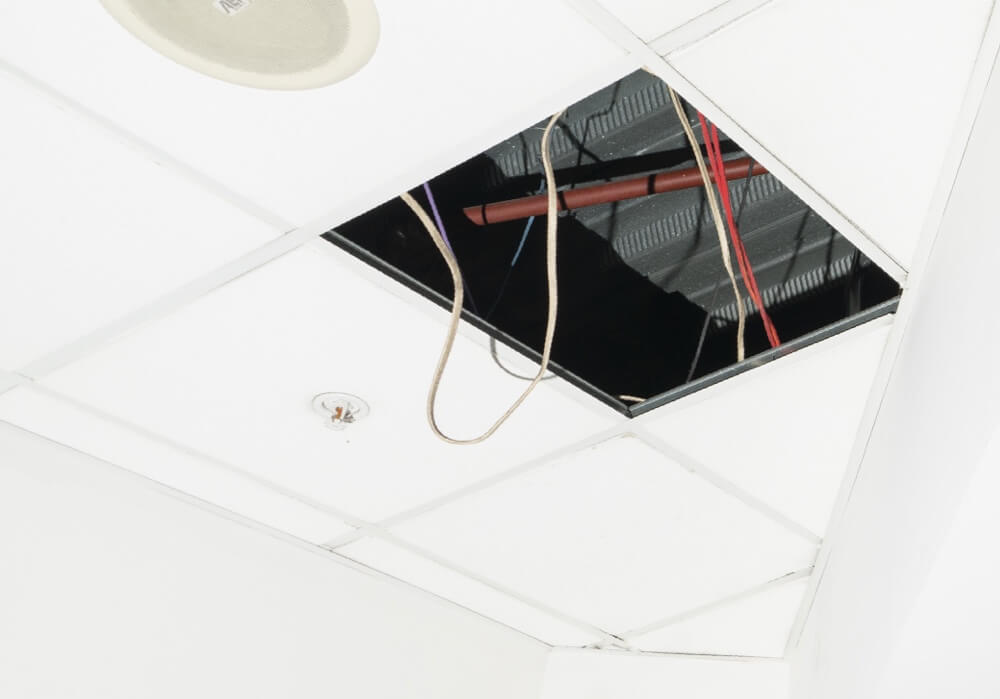
Brad Jacobs is in his car when he answers his phone.
The Coffee Club director is sitting outside one of his cafes, paying it a visit, making sure the owners are doing okay. Covid-19 lockdowns hurt his business. He’s had to close three of Coffee Club’s 65 cafes around Auckland and beyond in the past 12 months. One of them was in the Sky World Entertainment Centre.
It shouldn’t have been that way, says Jacobs. “That’s the most frustrating part,” he adds. “Of all of our outlets in the city, it was actually … not trading terribly at all.” The problem, says Jacobs, came from inside the building — a lack of support from the landlord.
It didn’t just affect The Coffee Club. “Everyone was down and everyone was hurting, but everyone was holding on to some hope and could see that there would be a future there one day. Without any support from the landlord, it was just impossible.”
Jacobs’ allegations help to reveal why so few of the building’s tenants remain. He claims they were refused rent reductions during lockdowns. He says The Coffee Club’s rent actually went up. And that’s not all — he owes Kwak nearly $20,000 in legal costs, too. “[James] just refused any support at all. He chose not to. He chose to pass on a 10% rent increase. He chose to pass on penalty interest. He chose to pass on his legal costs. It was a very tough position he took on everyone.”
Jacobs was eventually forced to give up. He sat his Coffee Club franchise owners down, looked them in the eye and told them the bad news. “I sat there and said, ‘I can’t fix this, and there is nothing in the law that helps us’.” The cafe’s last day was in late March. “We hung on as long as we could,” says Jacobs. “It was heartbreaking. We were one of the last [tenants] left standing.”
The building’s former tenants started a private Facebook group. They swapped stories, sent messages of support, and attempted to console one another. They all thought the same thing. “No one could understand what [the landlord] was trying to achieve,” says Jacobs. “Why would he want to destroy the value of his building? What was the point of it all?”
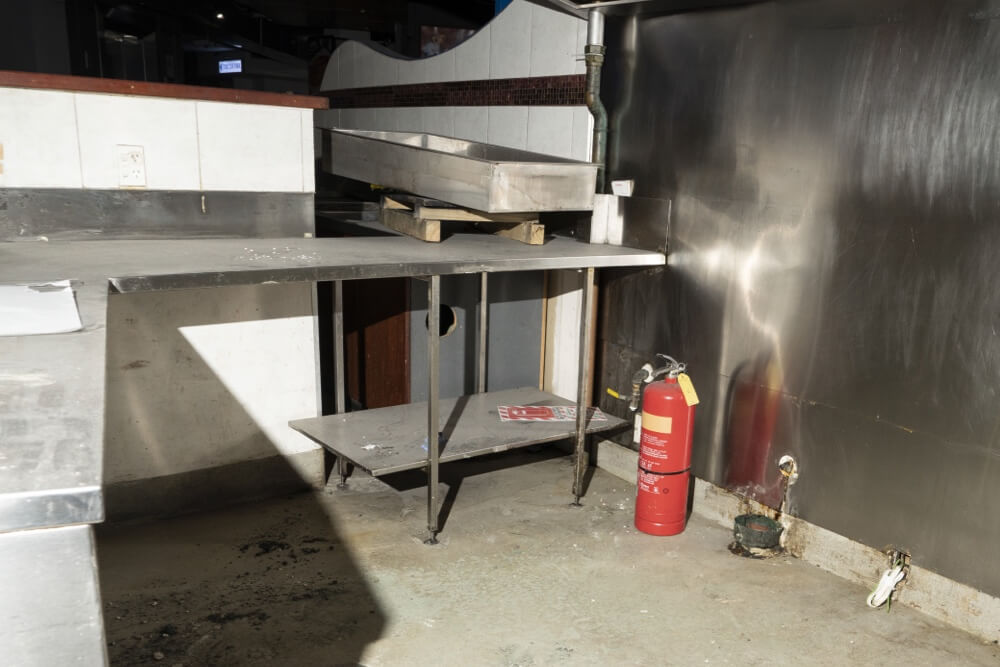
One man interviewed for this story didn’t hold back. At a job interview for the position of property manager at Sky World Entertainment Centre, he told them what needed to be said: “This place isn’t being run properly. If you want me to work here, this is what I’ll do.”
His plan was to return the Sky World Entertainment Centre to its former glory. He wanted every possible space leased, from the bottom-floor food courts and above. The building, he said, should be as busy as it could possibly be. “I went there to try and turn it around — to turn it back into what it used to be,” he says.
He soon realised he was facing an impossible mission. His proposals were quashed, every single time. “James said it all sounded good and he would go ahead with it. I soon found out that wasn’t going to be the case.” Every proposal to help tenants, to increase patronage, to attract store owners, was turned down, he says.
So he gave up. After his three-month contract finished, he turned down a full-time position at JNJ Holdings. “I didn’t want to stay there.” The problem? “It all comes down to one person: James. He basically employs everyone there, he makes all the higher-level decisions. I just couldn’t turn the place around.”
Like many people interviewed for this story, this for- mer staff member, who has more than 10 years of property management experience, asked not to be named. But his story helps paint a clearer picture of what the building’s tenants have been up against.
“They didn’t like being there,” he says. “The general gist of most of the tenants, other than the cinema, was they didn’t want to be there. They wanted to get out. That’s obvious. Anyone can determine that just by viewing the site.”
He’s still managing commercial properties, but shakes his head when explaining why a building so big, in such a prime position, has fallen into its current state. “It’s such a prime asset and a prime location. There’s absolutely no reason for it to be as unloved and under-utilised as it is,” he says.
To him, improving the building’s fortunes is easy: offer incentives, and fair market rent, and tenants will return. He estimates it would be “a work in progress over a number of years”. But there’s no way he’d return to work for the current owner.
Ask him what was wrong with his three-month employment at JNJ Holdings and he says: “Basically everything.”
Others have hope for the building’s future, too. Its original architect, Ashley Allen, submitted major renovation plans in 2017. His widescreen makeover includes adding a cigar-shaped structure on top of the building, opening it up to live music and rooftop dining. Food courts would be completely overhauled and given a space-age theme. Digital screens would provide live feeds to match meals: Beijing matched to Chinese food, Rome to Italian. A giant steampunk cage could transport 50 people at a time to the rooftop.
But those plans seem to have gone nowhere. RCG, another Auckland architectural firm, has recently been showing off its own radical redesign. The company didn’t respond to a request for comment, but its plans include a Times Square-style digital building wraparound, with an open-air interior bathed in neon-red hues. It also adds a floating bar in the middle of the atrium — a design so over the top, it might just work.
Allen, however, believes he’s the only architect who can resurrect the place. He wants to make his original design bigger and better. “The building can gear up to a greater level of that original concept,” he says. In the meantime, he’s sick of watching his baby age badly. “It’s supposed to be an entertainment centre. It’s supposed to be full of vibrancy and light and activity and colour,” he says. “It’s become chaotic.”
Unlike others, Allen hasn’t had a bad experience with Kwak. “I’ve found him really nice,” he says. If Kwak walked by, Allen says he’d happily have a coffee with him, chat over the building’s latest upgrade requirements. If he started designing tomorrow, he estimates his plans would take a year to finish, with another year of construction. The cost? “$15-20 million.” According to the council, the building’s current CV is $42 million.
So why hasn’t it happened? What’s holding it back? “I don’t think he’s got the vision,” says Allen. “This is entertainment. This is all about people’s visions, aspirations, emotions. You can’t put it on an accountant’s sheet. He doesn’t realise that and I have been unable to show him the importance of that.”
His voice trails off. “I think he’s too… I don’t want to say it.”
It’s a cold and drizzly Tuesday night in central Auckland. I hunch my shoulders and quicken my step across Aotea Square. As a struggling university student in the early 2000s, I spent weekends skateboarding over these concrete slabs with friends. Afterwards, we’d pick up our decks and head inside for a feed. It was always warm and busy, bustling with people, full of enticing smells.
Not anymore. I walk past the faded posters that promise “Something awesome is coming” and head in through the front doors, under the broken digital display board offering movie screenings from 2019. I glance down to the levels below, to the Lost in Time mini-golf course. It’s still there, but it’s closed, and people have been throwing their rubbish down into it — popcorn tubs and drink containers litter palm trees. The food court remains closed. It’s almost entirely empty. Just a single person, face hidden under a hood, is sitting there, reading a book, escaping from the rain outside. Pita Pit cards remain scattered through the trashed ice-cream parlour.
On the escalators, I duck past the oil drips pooling above me, and head past the entrance to Event Cinemas’ IMAX theatre. I once fled a Michael Bay Transformers film here with a headache so severe, Panadol couldn’t quash it. Another time, an entire audience followed Kiwi actor Karl Urban down the spiral staircase, only to get lost in the lower levels. Twenty years on, people still get disoriented the same way.
I head across the sky path and press the button for the rocket-ship elevator. One level up is Event Cinemas’ Gold Class theatres, the former home of Planet Hollywood. It was here I met my wife, chatting nervously at the squiggle-shaped neon-blue bar over cheap student drinks. We swapped stories about bad flatmates and made weekend plans as I assured her tipsy friends I wasn’t, in fact, cricketer Daniel Vettori.
Up on the building’s highest level, I head along a walk- way to stand in front of a locked green door. This, Metro understands, is Kwak’s office. No one answers my knocks. So I pin a handwritten bright-pink card on the door. After a short introduction and my contact details, my note pleads with Kwak — again — to talk to me, to agree to an inter- view, to tell Auckland what his plans are for this essential piece of the city’s entertainment scene. I use the word “please” three times. I’m still waiting for a response. I’m not holding my breath.
—
This piece was published in Metro 431 – Available here in print and pdf.

